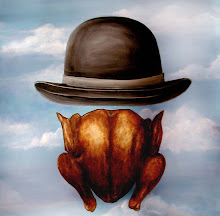
The dictionary defines a hero as "a person noted for feats of courage or nobility of purpose, especially one who has risked or sacrificed his or her life." A personal hero is someone we hold in especially high esteem. For me, Dr. King is both a national and personal hero. I have no illusions that he was a flawless man. I simply have the conviction that his virtues far outweighed his faults and that this nation is a better place because of him. When I read his speeches and weigh them in the context of his time – considering his ability and courage to pursue his aggressive but nonviolent humanitarian principles despite enormous pressures from those who thought he was going too far and those who thought he wasn’t going far enough – I conclude that he was an extraordinary inspirational leader with uncommon vision and strength. Dr. King didn’t simply talk about his dreams. He went to the battle lines time and time again to fight for them. Before he was finally murdered at the age of 39, his home had been bombed. He knew he was continuously putting his life at risk to advocate social justice, human dignity, and an end to racism and bigotry. We have not yet fully reached Dr. King’s promised land where all people will be judged by the content of their character, but we’re certainly closer to it because of him.
1. A genuine leader is not a searcher for consensus but a molder of consensus.
2. I have a dream that my four little children will one day live in a nation where they will not be judged by the color of their skin, but by the content of their character.
3. He who passively accepts evil is as much involved in it as he who helps to perpetrate it. He who accepts evil without protesting against it is really cooperating with it.
4. It may be true that the law cannot make a man love me, but it can keep him from lynching me, and I think that’s pretty important.
5. I have decided to stick with love. Hate is too great a burden to bear.
6. Human progress is neither automatic nor inevitable. No social advance rolls in on the wheels of inevitability. Every step requires sacrifice, suffering, and struggle – the tireless exertions and passionate concern of dedicated individuals.
7. Nonviolence is a powerful and just weapon. It cuts without wounding and ennobles the man who wields it. It is a sword that heals.
8. We will never have peace in the world until men everywhere recognize that ends are not cut off from the means because the means represent the end in process, and ultimately you cannot reach good ends through evil means because the means represent the seed and the end represents the tree.
9. An individual has not started living until he can rise above the narrow confines of his individualistic concerns to the broader concerns of all humanity.
10. An individual who breaks a law that conscience tells him is unjust, and who willingly accepts the penalty of imprisonment in order to arouse the conscience of the community over its injustice, is in reality expressing the highest respect for the law.
11. Darkness cannot drive out darkness; only light can do that. Hate cannot drive out hate; only love can do that.
12. If we are to go forward, we must go back and rediscover those precious values: that all reality hinges on moral foundations and that all reality has spiritual control.
13. Nonviolence means avoiding not only external physical violence but internal violence of spirit. You not only refuse to shoot a man, but you refuse to hate him.
14. Our scientific power has outrun our spiritual power. We have guided missiles and misguided men.
15. That old law about “an eye for an eye” leaves everybody blind. The time is always right to do the right thing.
16. Life’s most persistent and urgent question is, “What are you doing for others?”
17. The first question that the priest and the Levite asked was: "If I stop to help this man, what will happen to me?" But...the good Samaritan reversed the question: "If I do not stop to help this man, what will happen to him?"
18. Intelligence plus character – that is the goal of true education.
19. If physical death is the price I must pay to free my white brothers and sisters from a permanent death of the spirit, then nothing can be more redemptive.
20. We’ve got some difficult days ahead. But it really doesn’t matter with me now because I’ve been to the mountaintop. Like anybody, I would like to live a long life. But I’m not concerned about that now. I just want to do God’s will. And He’s allowed me to go up to the mountain, and . . . I’ve seen the Promised Land. I may not get there with you. But I want you to know tonight that we, as people, will get to the Promised Land. And I’m happy tonight. I’m not fearing any man. (Spoken shortly before his death.)



















